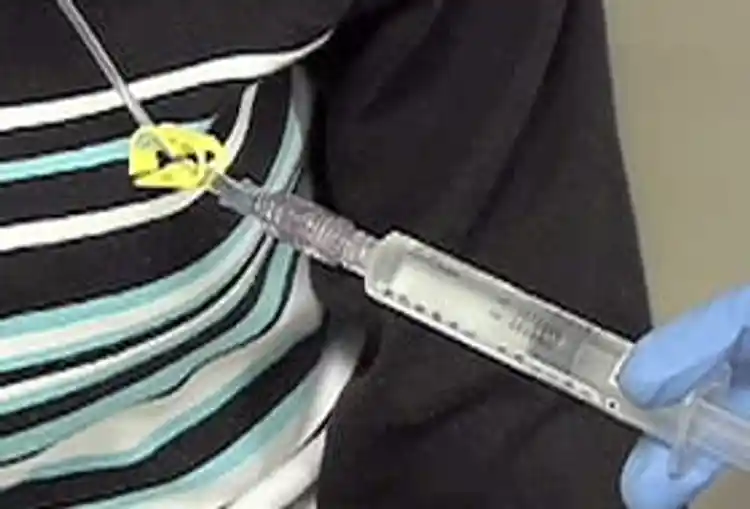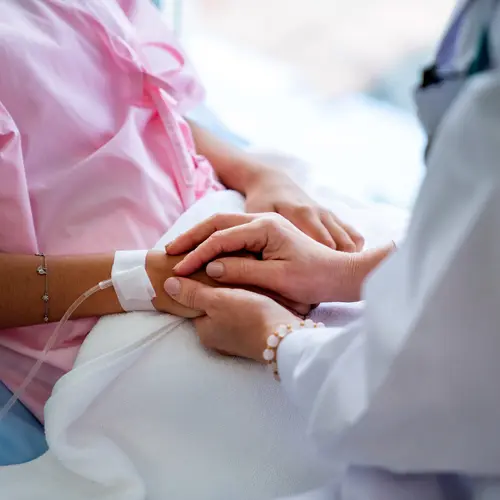Chemotherapy Side Effects

Hide Video Transcript
Video Transcript
Narrator
Not all cancer patients have to undergo chemotherapy, but many who do often see a certain irony in this particular type of treatment. Julie Silver, MD
In cancer it's very different than it is in many other diagnoses. If you have pneumonia for instance, and you have a high fever and a cough and you feel terrible, you go to the doctor and the doctor gives you medicine that makes you feel better. It's very different in cancer. I mean, you feel pretty good usually in the beginning, maybe you have a screening test that shows something, or a little blood in your urine or in your stool, and then all of a sudden you become a cancer patient who gets many, many toxic treatments. And at the end of treatment you feel far worse than you ever have felt in your life, usually. Narrator
In general, chemotherapy works by killing cancer cells. Sometimes healthy cells are killed along with malignant ones. It's this friendly fire that accounts for many of chemo's unfavorable side effects. Not everyone undergoing chemotherapy suffers negative results, but most do. Fatigue, changes in weight, flu-like symptoms, hair loss, and digestive problems are bad enough, but many patients say nausea is the most debilitating. John S. Kouh, MD
The nausea's brought on by several different effects: one can be direct killing of gi mucosal cells or two, it could be because of…as the tumor cells die they release hormones which then go to the brain to make patients feel sick… Narrator
Fortunately there have also been advances in treatments that can soften the blow of chemo; among them a new medicine that combats queasiness by blocking the hormone serotonin. John S. Kouh, MD
That was actually a breakthrough drug. It revolutionized chemo-therapy. Prior to this drug, many chemo-therapies had to be done with the patients in the hospital because they became so sick and since that drug has been approved, patients are getting chemo-therapy as an outpatient. Narrator
Today there are a host of drugs that combat nausea. Some in pill form are taken after therapy, but many are given intravenously prior to the chemo drugs themselves. And there are simple things patients can do in addition: John S. Kouh, MD
After chemotherapy we tell patients to stay away from anything very spicy, which can upset one's stomach and also try to stay away from any foods with very strong odors because that tends to make people a little queasy as well. Narrator
The search for a cure is on going, but early detection and a greater variety of treatment options have granted many cancer patients not just more time but more quality time. For WebMD, I'm Damon Meharg. 